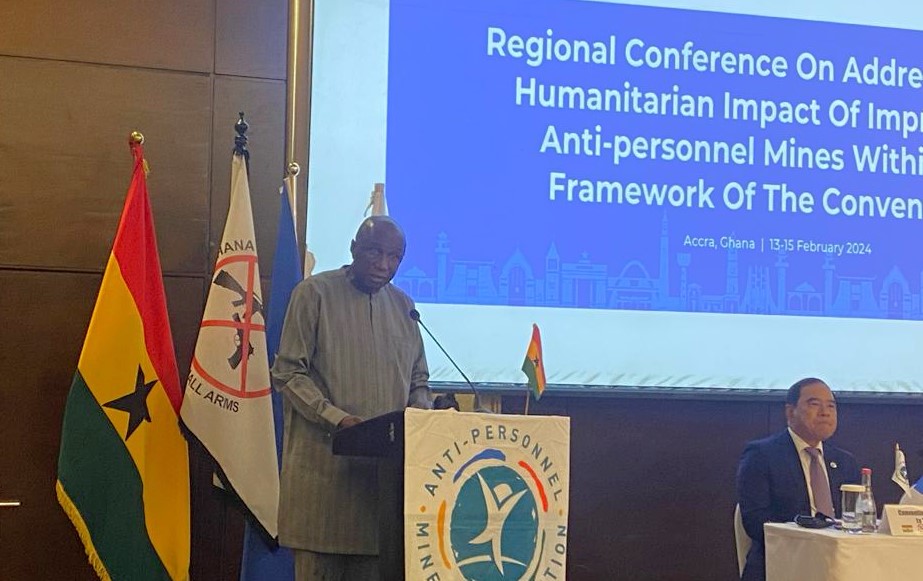By Eric Appah Marfo
Accra, Feb.13, GNA—Mr Ambrose Dery, Minister for the Interior, has urged the Economic Community of West African States and nations within the Sahel to unite and mitigate humanitarian crises caused by improvised anti-personnel mines.
He also asked them to engage in constructive dialogue, exchange best practices and explore innovative solutions to the menace.
Mr Dery made the comments on Tuesday at the opening ceremony of a three-day Regional Conference on addressing Improvised Anti-Personnel Mines within the context of the Convention on the Prohibition of the Use, Stockpiling, Production and Transfer of Anti-Personnel Mines and on their Destruction, in Accra.
The Convention is the cornerstone of the international effort to end the suffering and casualties caused by anti-personnel mines.
The Regional Conference was organised by the National Commission on Small Arms and Light Weapons, together with the Convention’s Implementation Support Unit to provide a regional platform for West African and Sahel-region States Parties to exchange information on the humanitarian and development impact of improvised anti-personnel mines and the need to address the impact of these weapons under the Convention’s framework.
It was also held thanks to support provided by a Decision adopted by the European Union Council (2021/257) to among other objectives, back “dialogue and actions that can contribute to establishing sustainable national capacities to address previously unknown mined areas; increase regular dialogue with stakeholders; and explore opportunities for cooperation (international, regional, triangular, and south-south) to address remaining challenges”.
The Decision places special emphasis on the reporting of anti-personnel mines of an improvised nature.

Mr Dery said anti-personnel mines continued to exact a devastating toll on civilian operations, causing untold suffering and hindering the socioeconomic development of affected communities.
He, therefore, said the Conference reflected the global solidarity and collective commitment of Africans to address the pressing humanitarian challenges posed by anti-personnel mines.
Mr Irchad Razaaly, European Union (EU) Ambassador to Ghana, said Ghana’s hosting of the Conference showed her commitment to achieve an international cause linked to global security.
He said the EU supported the universalisation of the ban on land mines and assured the Convention of both political and financial support from the EU.
Dr Ly Thuch, Senior Minister of Cambodia, Vice-President of the Cambodian Mine Action, and Victim Assistance Authority, called on Ghana and other African signatory states to convince Egypt, Libya, and Morocco to join the Convention.
He said the increase in injuries was a reminder that more work needed to be done to deal with the humanitarian threats posed by anti-personnel mines.
Dr Thuch, also the current President of the Anti-Personnel Mine Ban Convention, urged participants to support each other, include everyone and stay focused on their goal of salvaging the world from the destruction caused by improvised anti-personnel mines.
Madam Margaret Arach Orech, Founder and Director, Uganda Landmine Survivor Association, said the continuous conflicts around the world and in Africa kept creating a surge in numbers of new victims and creating more burdens on states.
She said through collaboration, African states could address this menace and urged stakeholders to raise awareness on the plight of victims and assist them at various levels of government, civil society, and private sector.
Madam Orech, also the Ambassador for the International Campaign to Ban Landmines said the voice of the international community was necessary to send a clear message to protect lives and ensure the human rights of survivors.
GNA